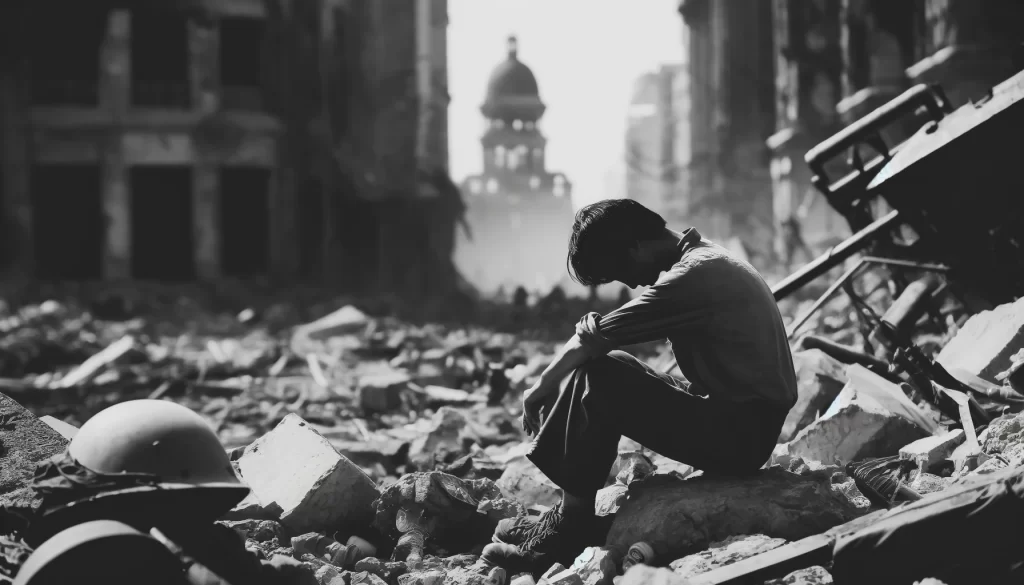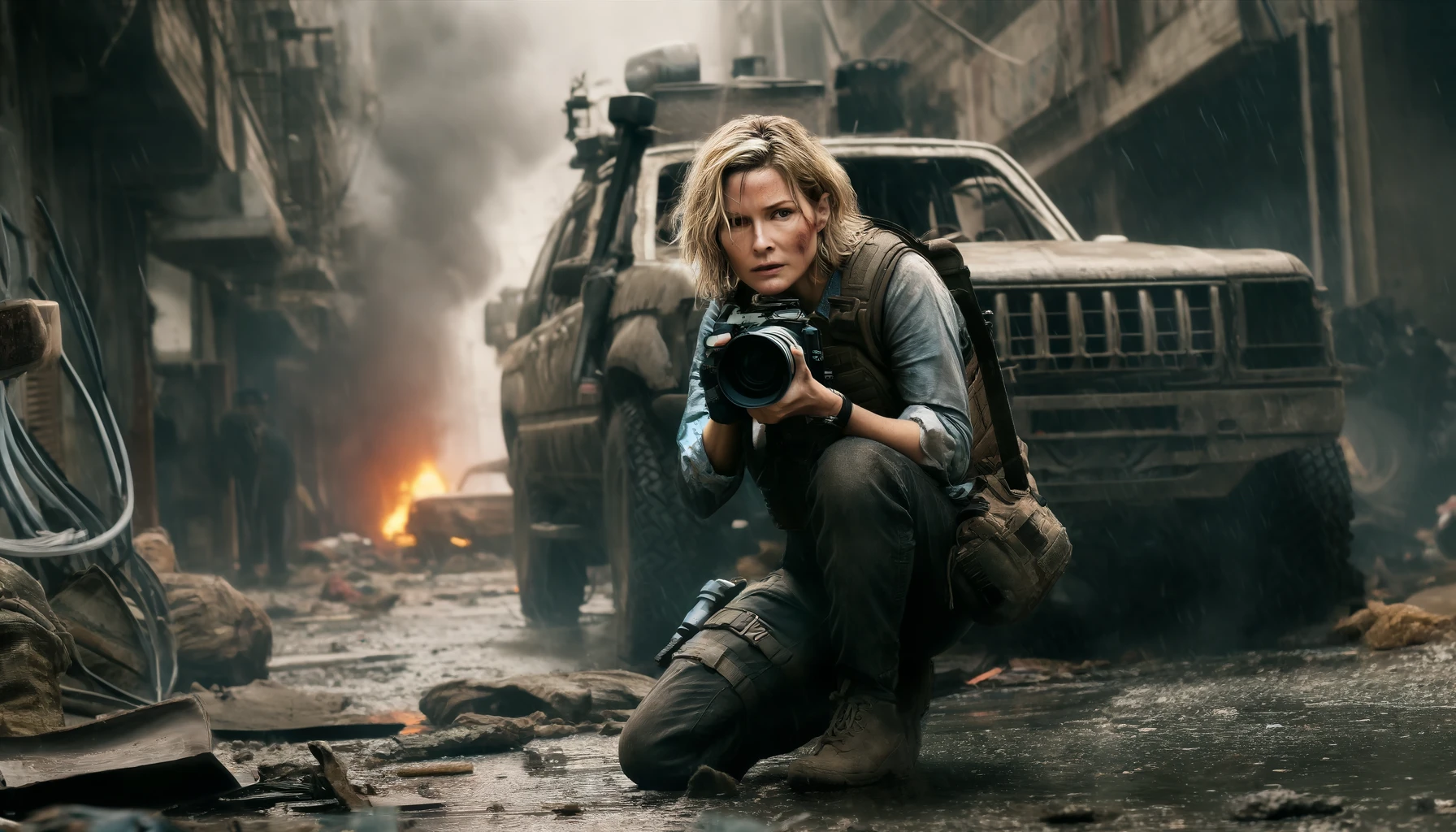Rating: ★★★★☆
Where to Watch: In Theaters ( IMAX )
Watching A24‘s “Civil War” at AMC Theatres IMAX Empire 25 after a draining day, I found myself in a near-empty theatre a setting that mirrored the isolation and tension palpable in the film. As a Sri Lankan who has witnessed the profound impacts of a 30-year ethnic conflict and the recent Aragalaya revolution against the Rajapaksa regime, the film’s themes resonate deeply with me, casting a reflective lens on my experiences of political turmoil and societal fracture.

“Civil War,” distinctively deviating from traditional war narratives, positions itself as a suspenseful thriller that probes the depths of American division. Unlike the traditional war dramas suggested by its trailers, the film chooses a speculative approach, focusing on the psychological and social ramifications of internal strife rather than battlefield heroics. This perspective is particularly poignant for someone familiar with the real-life consequences of long-standing conflict.

The plot centers around Kirsten Dunst’s character, Lee, a veteran journalist. She and her team embark on a perilous journey from New York to Washington DC amidst a second American Civil War. Their mission is to document this chaos, offering a window into the variety of human experiences during such turmoil—an echo of the many stories I’ve seen and heard in Sri Lanka, where the personal and communal costs of conflict are all too familiar.
The film’s strength lies in its detailed vignettes—terror attacks, skirmishes, and refugee crises—that paint a broader picture of societal breakdown. This method of storytelling, which includes poignant still images taken by the characters, adds layers to the narrative, reflecting the stark realities I’ve observed in my own country where every image and story carries the weight of ongoing strife.

While “Civil War” may glide over the deeper motivations of its characters, such as Sammy’s unclear reasons for joining the perilous journey, this narrative choice resonates with me. It reflects the often inexplicable personal decisions that individuals make in crisis, driven by survival rather than political understanding. This focus on immediate human responses, rather than the broader geopolitical complexities, mirrors the experiences of many Sri Lankans who have lived through decades of conflict.
Technically, the film is impressive. The immersive sound design and striking cinematography enhance the visceral experience of the unfolding conflict, echoing the chaos and the sudden bursts of violence that I have witnessed firsthand.

Despite some criticisms regarding its narrative and character depth, “Civil War” serves as a compelling exploration of the impacts of war on a personal and societal level. For me, the film is a poignant reminder of the catastrophic consequences of internal conflict and a reflective nudge to consider the real costs of such divisions—themes that are all too familiar and resonant.

In conclusion, watching “Civil War” was more than an evening’s entertainment; it was a reflective journey into the heart of societal discord—a beautifully crafted warning about the horrors of war, making it a must-watch for those interested in a deep, albeit speculative, exploration of human resilience and despair in times of conflict.
